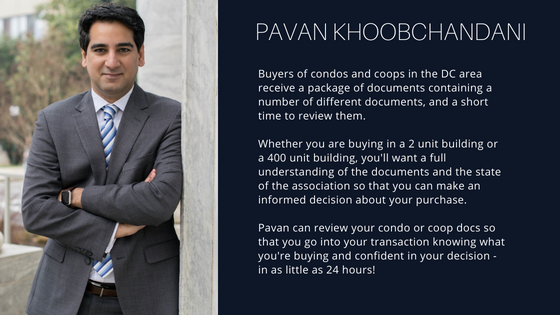Ten Things To Consider Before Buying A Condo In A Building With A Commercial Unit
- Pavan Khoobchandani
- Jan 24, 2023
- 3 min read

There are a lot of benefits to living in a building with a commercial unit, especially if the commercial space is ground-floor retail. Whether it's a wine bar, a yoga studio, or a corner store, the convenience of having a place to shop nearby is often what draws people to condo ownership in the first place.
However, living in a building with a commercial unit can also bring unique challenges. For example, you may experience noise from customers or staff members coming in and out of the building, and you may have to be extra vigilant about security. Additionally, since most retail spaces are small, there can be limited parking available for patrons, leading to congestion on the streets near your home.
Here are ten things to think about to make sure you're making the right decision when purchasing a condo in a building with a commercial unit.
Does the commercial unit have exclusive rights to use any common areas or facilities such as elevators, parking spaces, storage areas. etc.? If so, then it could restrict access for residents who live in the building - and the café area where you thought you could have your morning pastry and coffee could end up being off limits to you.
Are there special regulations or restrictions that apply to businesses operating within the building? For example, a restaurant may have regulations regarding late-night hours or noise levels. Or, the business may be allowed to perform any construction it wants, while owners must get approval for renovations.
Consider the types of businesses that are allowed to occupy the building, which are often specified in the condo Bylaws. Some condos will, for example, not allow restaurants or food-service establishments with a full kitchen in an attempt to prevent rodent/pest control problems or odors. If there is a kitchen, is there proper exhaust such that smoke and odors are kept away from the residential units?
Find out how much noise you can expect from any commercial activities taking place in the building. Depending on what type of business is being run, it could be anything from loud music or machinery, to people coming and going. One building I know of had a very heavy back door that opened and closed constantly that caused a lot of noise and vibrations for the unit directly above it.
Does the business has any security measures in place, such as video surveillance? This can help to reduce any safety concerns you may have about living in a building with a commercial tenant, and could actually increase security.
Consider how much parking will be available for customers and employees of the business. If there is limited parking, it could lead to more traffic on the streets near your home or double parking.
If the space is leased to a commercial tenant, find out when its lease expires. This is important because when the tenant moves out, the owner will likely need to find a new one, which could entail renovations or repairs and related construction noise and disruption. And, if the tenant moves without a replacement lined up, it may be harder for the owner to pay its condo fees, since there will be no rental income.
Look into whether there are separate budgets for the commercial unit(s) and the residential units. A deep dive into the finances of the association will give you information on whether the residential units subsidize the activities of the commercial unit, or whether the commercial unit is responsible for everything relating to their own space.
Where does the commercial unit dispose of its trash? If it is in the same area as the residents, is the trash area large enough to accomodate a business's trash needs?
Find out whether the business that's in the condo is a good neighbor. Review meeting minutes, talk to neighbors and the condo board, and maybe even the business itself.
A condo building that has a commercial space can be a great investment, if things are set up properly. With the right due diligence, you can make sure that you are buying a condo in a building with a commercial unit that isn't likely to cause headaches down the road.

.png)


